If you frequently experience heartburn, you know that fruit juices tend to be the main culprit.
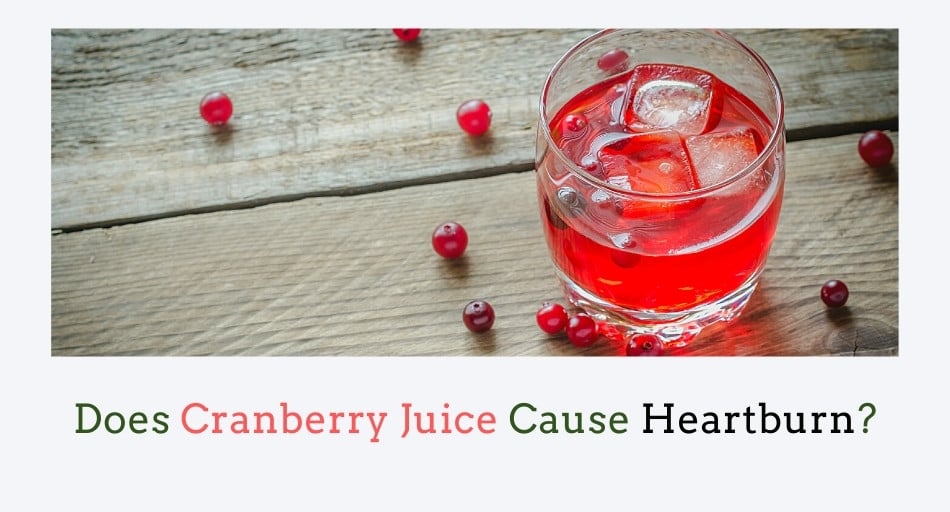
They're often loaded with sugar and low in fiber, which both contribute to a higher risk of heartburn.
Some juices are less acidic than others, so they can be a great addition to a low-acid diet in moderation.
For example, cranberry juice comes with a lot of health benefits. But does it cause heartburn?
Table of Contents
Does Cranberry Juice Cause Heartburn?
Cranberry juice has a low pH level, is high in sugar, and doesn't contain too much fiber. All of this makes it a trigger beverage for most people with acid reflux. It's also rather high in calories.
Although if you can tolerate some cranberry juice or tend to dilute it with water, drinking it can improve your health and prevent various health conditions like kidney problems and urinary tract infections (UTIs).
Don't know what to drink? Check out these articles: 20 Most and Least Acidic Juices and 20+ Alcoholic Drinks Ranked by Acidity Level
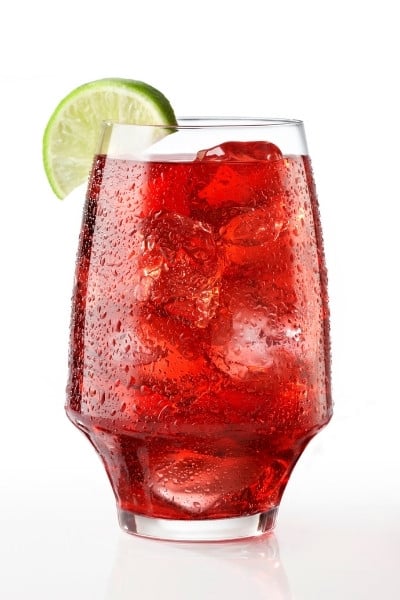
Is cranberry juice acidic?
Cranberry juice has a pH level of around 2.30-2.52. It not only has a low pH level, but it's also acid-forming.
Because of that, drinking too much cranberry juice can worsen acid reflux symptoms like heartburn.
On the bright side, cranberry juice is less acidic than orange juice. So, if you have to pick between these two, cranberry juice is definitely better for people with heartburn.
How can cranberry juice cause heartburn?
A single glass of cranberry juice contains 30.6 g of sugar, which is a lot. This nutrient raises your blood sugar levels and causes spikes in them, increasing your risk of diabetes. It also leads to inflammation in your digestive tract.
Such inflammation makes your stomach more likely to overproduce gastric acid, which can then reflux up your esophagus and cause heartburn. So, it's best to avoid sugar-rich beverages on acid reflux.
It's also worth noting that this amount of sugar is found in unsweetened cranberry juice.
Because of that, some store-bought cranberry juices can contain even more sugar in the form of added sugars. So, always read the nutritional label before buying your juices.
Unlike actual fresh fruit, juices don't contain a lot of fiber, and the same goes for cranberry juice. Fiber can help soak up excess stomach acid, preventing it from rising up and causing heartburn.
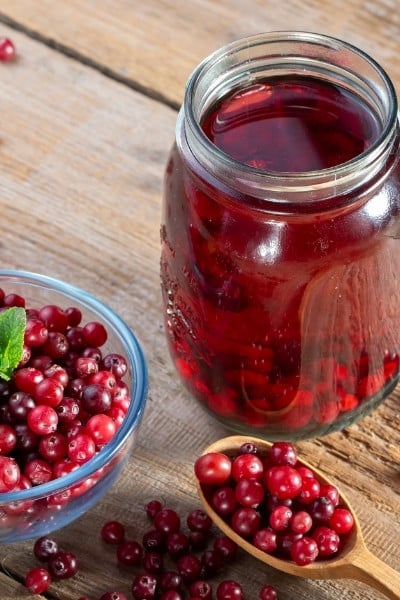
So, this lack of fiber paired with a large amount of sugar makes for a bad combination for people who are sensitive to acidic foods and drinks.
Is cranberry juice healthy?
One of the most abundant vitamins in cranberry juice is vitamin C. One cup of this juice contains 39% of your daily recommended need for this vitamin.
Also known as ascorbic acid, vitamin C is crucial for the growth, development, and repair of your body's tissues and cells.
Vitamin A also boosts your immune system, improving your body's effectiveness in fighting against viruses and bacteria. So, having an occasional glass of cranberry juice can help you stay healthy.
Cranberry juice also contains a decent amount of vitamin K. This fat-soluble micronutrient is necessary for blood clotting, wound healing, and bone metabolism.
It also helps keep your blood healthy and may improve memory in older adults.
While leafy greens are the best source of vitamin K, a glass of cranberry juice contains 16% of your daily need for this vitamin. So, it still makes for a pretty great source.
Cranberry juice is most commonly recommended for women to prevent and treat UTIs. Studies believe that the plant compounds found in cranberries help keep your kidneys healthy, flushing out any harmful bacteria.
Drinking cranberry juice may also improve the health of your heart. This is because it has anti-inflammatory compounds, which prevent damage to your blood vessels and arteries.
These compounds also prevent plaque buildup in your arteries, reducing your risk of heart attacks.
Since it's made from cranberries, cranberry juice is also loaded with antioxidants, including vitamin C, vitamin E, and quercetin.
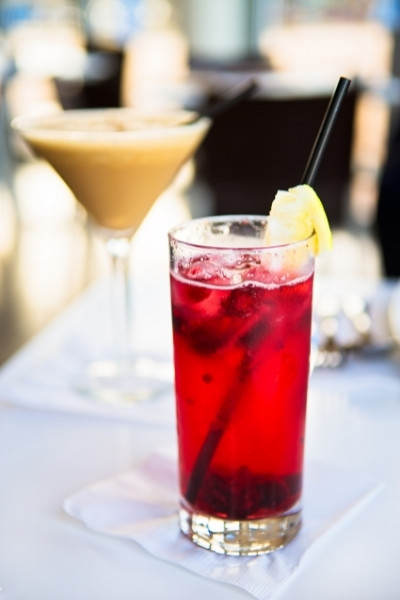
These antioxidants help prevent oxidative damage to your cells and also prevent inflammation.
Because of that, drinking cranberry juice can reduce your risk of various health conditions, including cancer, diabetes, chronic inflammation, and heart disease.
Should you drink cranberry juice on acid reflux?
Cranberry juice is an acidic beverage, so it might trigger heartburn in people prone to getting it and those with acid reflux and GERD.
But that doesn't mean you have to eliminate it from your diet altogether.
One way you can keep cranberry juice in your diet is to dilute it with water. That way, you can still get the flavor and micronutrients without consuming too much sugar and calories. This will also prevent spikes in your blood sugar levels.
On the other hand, if you notice that you get heartburn after drinking cranberry juice, no matter what you do, it might be best to stop having it.
You can talk to your doctor about some antacids or other medications, but sometimes the only way is to avoid such trigger foods.
Are cranberries better for heartburn than cranberry juice?
Cranberries are definitely much better for heartburn than cranberry juice. Firstly, they contain 10% of your daily need for fiber and just 2.2. g of sugar in a half-cup serving.
As compared to cranberry juice, they are less likely to cause heartburn as a result of that.
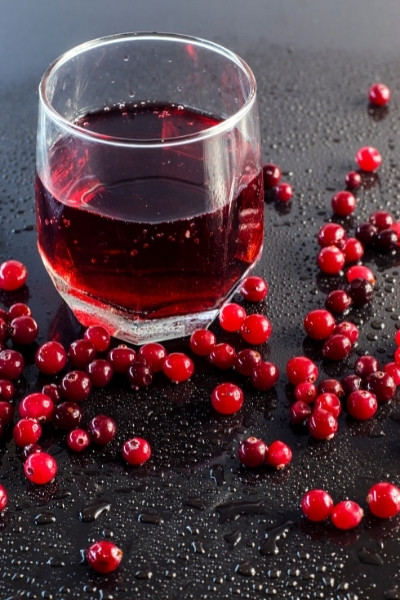
What's more, cranberries are lower in calories and higher in minerals and vitamins, as the juicing process can strip them of fiber and other micronutrients. Because of that, raw cranberries might be easier for your stomach.
But make sure to still consume them in moderation since cranberries are still acidic and can cause heartburn if you eat too many of them.
Conclusion
Cranberry juice is very acidic, just like most other types of juice. Because of that, drinking it can definitely give you heartburn, which is very unpleasant.
For those who can tolerate some fruit juices on acid reflux, though, cranberry juice can provide a lot of important minerals and vitamins.
So, check whether certain food or drink triggers your heartburn and adjust your diet accordingly.
Don't know what to drink? Check out these articles: 20 Most and Least Acidic Juices and 20+ Alcoholic Drinks Ranked by Acidity Level
Sources: Nutrition Data, FDA, National Library of Medicine, and Journal of Nutrition
